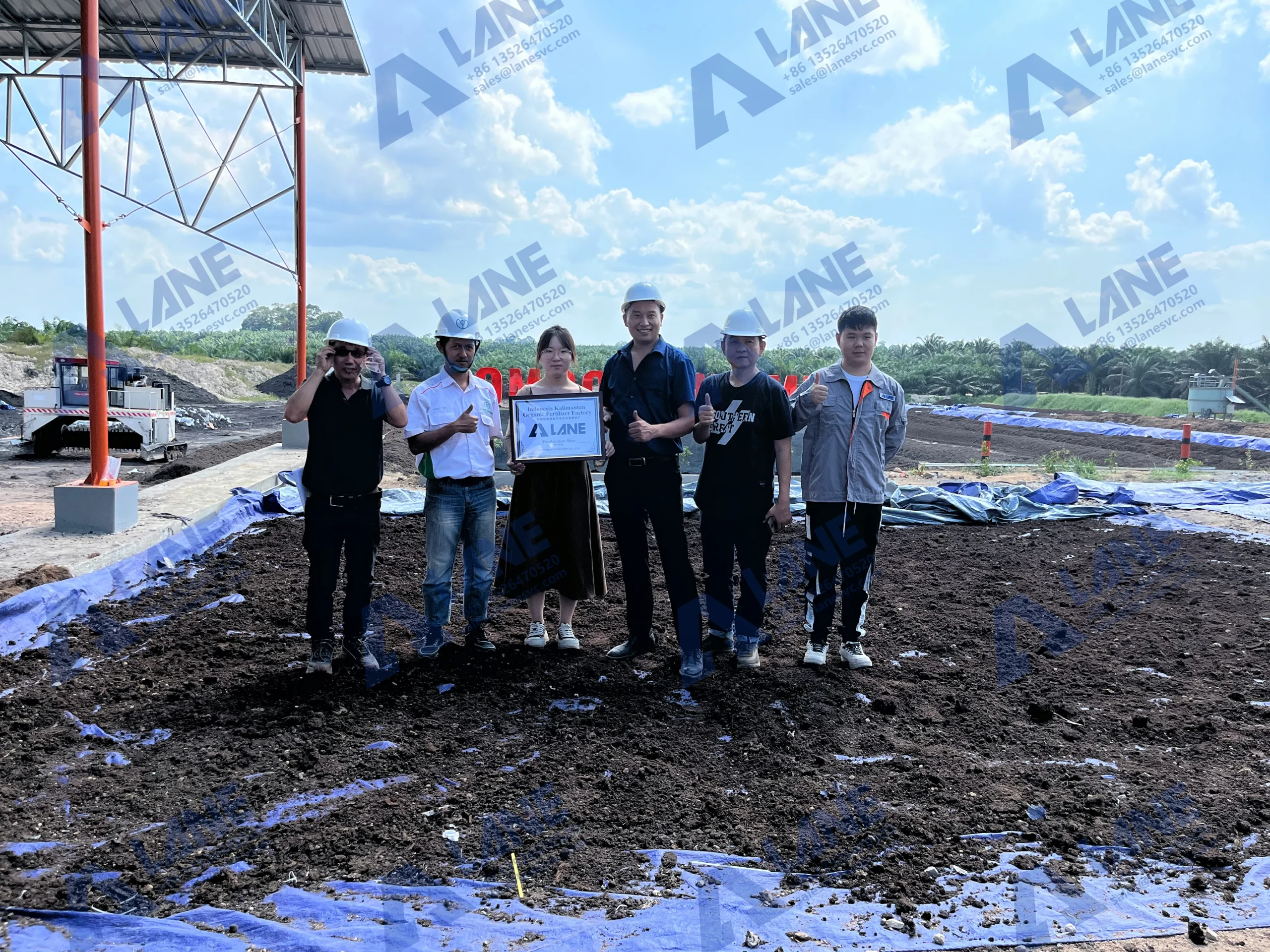The Tow Behind Compost Turner is a core piece of equipment in modern organic fertilizer production, mainly used for aerobic fermentation treatment of organic solid waste such as livestock and poultry manure, sludge and straw.
This equipment is towed and moved by a tractor, and uses a high-speed rotating turning mechanism to perform operations such as turning, crushing, aeration and pile transfer on the strip-stack compost.
Compared with self-propelled or windrow turner, the traction design has the dual advantages of strong mobility and low investment cost, and is especially suitable for small and medium-sized organic fertilizer factories, breeding farms and decentralized composting sites.
Its core value lies in significantly enhancing fermentation efficiency through mechanical oxygenation, shortening the traditional natural fermentation cycle from 3 to 6 months to 8 to 12 weeks, while reducing labor costs and environmental pollution risks.
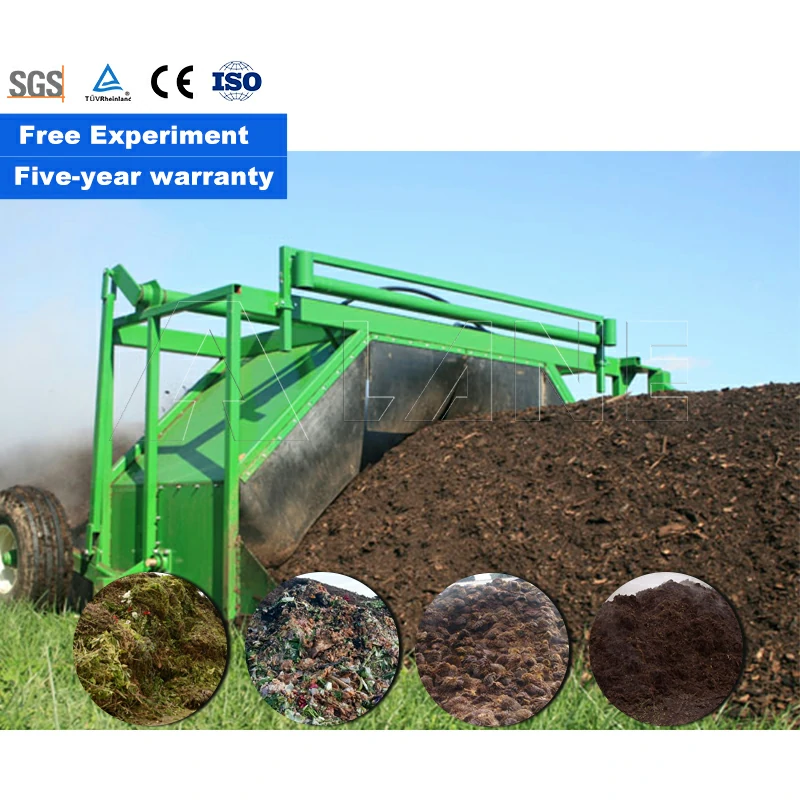
This data is for reference only. We will customize the equipment according to your specific needs.
| Model | LACT-612 |
| Turning width | 5.9 m |
| Turning height | 2.4 m |
| Capacity | 1361 MT/h (suitable for ≥175 hp tractor) |
| Adapt to tractor power | ≥175 hp(131 kW) |
| Equipment weight | 3982.5kg (including traction rod) |
| Maximum driving speed | 32.2 km/h (transportation mode) |
| Drum diameter | 88.9 cm (including blade) |
| Number of blades | 68 pieces (Specification: 1.3cm × 10.2cm × 30.5cm) |
| Tire specification | 12.5L-1614 tubeless tire |
| Structural material | Main frame: 10.2cm × 7.6cm × 0.5cm structural steel pipe; |
| Traction frame: 15.2cm × 7.6cm × 0.6cm steel pipe |
Note: The processing capacity is affected by the moisture content of the material, stacking height and ambient temperature. It is recommended to calculate it at 80% of the actual working conditions.
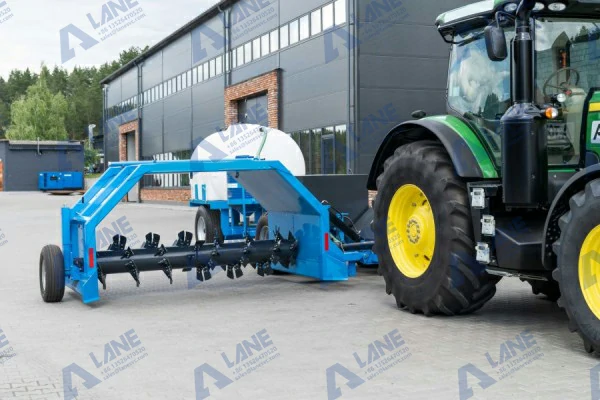
The structural design of the tow behind compost turner directly determines its durability and operational efficiency. The core modules include:
Heavy-duty frame system
The main body is constructed using 4″×3″×3/16″ (10.2cm×7.6cm×0.5cm) structural steel tubes welded together, reinforced with 7-gauge chain plates to ensure torsional stiffness under high loads. High-end models such as the CT612 upgrade the traction frame to 6″×3″×0.25″ (15.2cm×7.6cm×0.6cm) steel tubes, significantly extending the lifespan of bearings and drive shafts.
Turning Mechanism
Cutter roller assembly: A 35-inch (88.9 cm) diameter roller equipped with 68 sets of chrome steel blades (5″ × 4″ × 12″) breaks up clumped material through high-speed rotation, increasing oxygen permeability by 27%;
Chain plate-type turning machine: Features 390 wear-resistant curved teeth blades, combined with an elastic shock absorption system, to adapt to deep trench operations and reduce impact loads by 9%.
Hydraulic and Control System
Independent lifting cylinders control turning depth, enabling flexible adjustment for segmented or full-depth turning;
Optional remote control module allows driverless operation for forward movement, lateral shifting, and turning, improving working conditions in high-temperature, high-odor environments.
Mobility and Towing System
Wide-profile tires (e.g., 12.5L-16 14PR tubeless tires) reduce ground pressure and prevent site compaction; a dedicated towing frame with a quick-change mechanism allows switching to 32 km/h highway transport mode within 20 minutes.
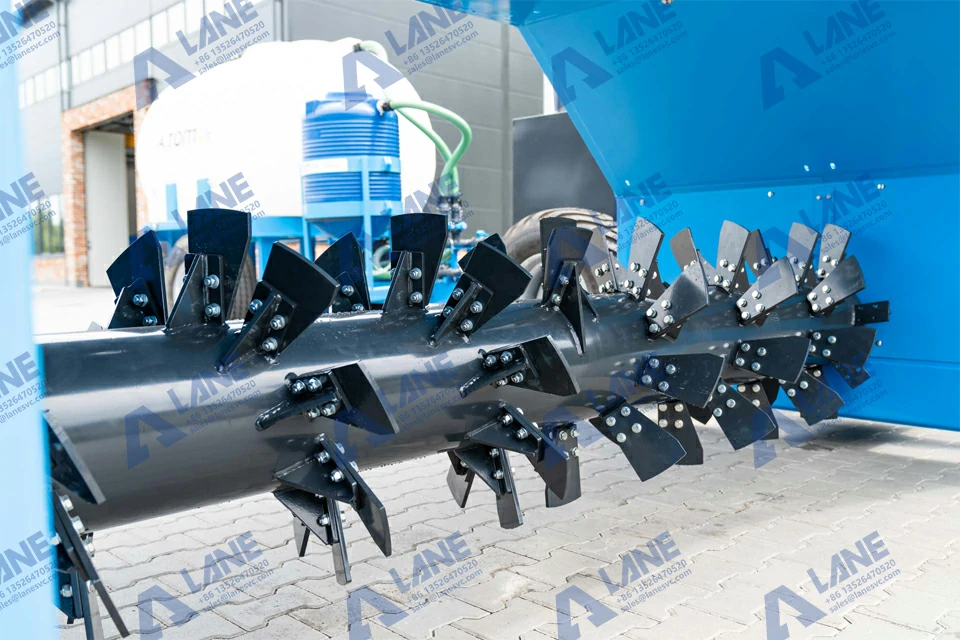
The tow behind compost turner optimizes the microbial environment for aerobic fermentation through physical intervention. Its process principles involve three key functions:
Oxygen Transport
During the turning process, the blades scatter the material to a height of 2–3 meters, increasing the porosity of the pile by over 35% and accelerating oxygen diffusion into anaerobic zones. The large-diameter drum design of the Wemoto CT612 further expands the airflow channels, increasing oxygen flux by 50% per unit time.
Temperature and Humidity Control
Each turning operation evaporates 10%-15% of moisture, combined with heat generated by microbial metabolism, raising the core temperature to 55-65°C within 48 hours and maintaining it for 5-7 days, effectively eliminating pathogens and weed seeds.
Microbial Activation
Periodic turning breaks down the local accumulation of microbial metabolic byproducts (organic acids), preventing pH imbalance. The star-shaped disc model employs a horizontal + vertical composite displacement design, enabling continuous progressive rearward movement of the material to ensure uniform fermentation.
Fermentation cycle comparison: Traditional static composting requires 90–120 days, while the mechanical turning system reduces this to 12–15 days, increasing production capacity by nearly sevenfold.
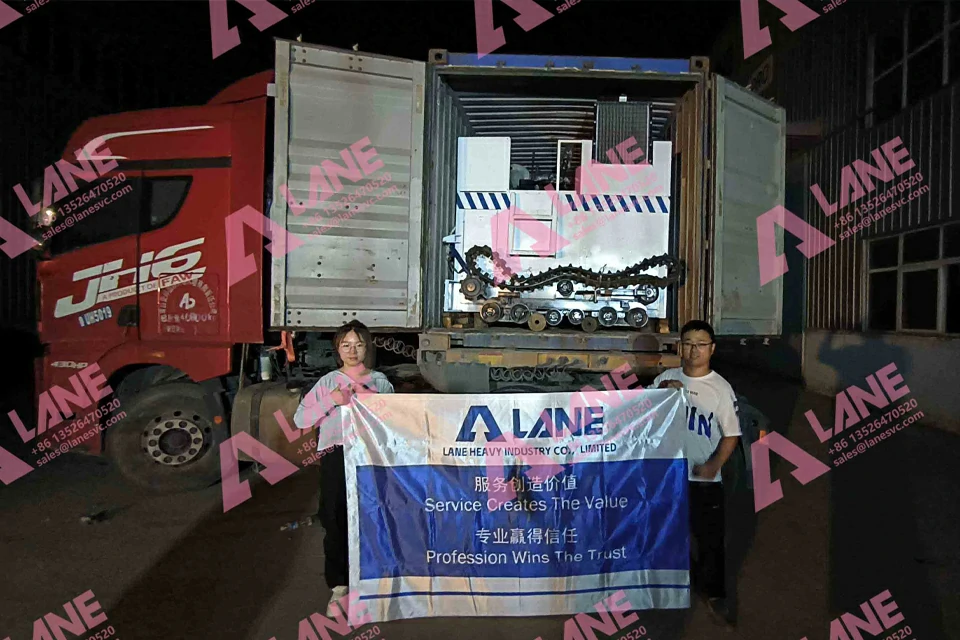
Compared to earlier models, modern tow behind compost turners have made breakthroughs in efficiency, reliability, and intelligence:
Energy Efficiency Innovation
The LANE tow behind compost turner adopts a low-center-of-gravity balance shaft design, weighing only 1.5 tons yet achieving a processing capacity of 700 m³/h, which is 25% more energy efficient than similar equipment. The hydraulic drive system responds in real time to load changes, avoiding no-load losses.
Maintenance Convenience
Optimized centralized lubrication point layout allows maintenance of critical bearings (such as 1-15/16″ ball bearings) without tools; modular quick-release blade design supports individual replacement, reducing spare part costs.
Enhanced Site Adaptability
The tunnel-style arched structure is formed from 6mm steel plates without welded seams or weak corners, and features a powder-coated finish for corrosion resistance;
Track-mounted variants (such as the LACT series) enable 360° turning, adapting to narrow sites.
Extended Smart Control
New features include a stepless automatic cable retractor and slot recognition sensors, which integrate with the fermentation tank track system to enable automated continuous operation across multiple tanks.
Tow behind compost turners have become a common piece of equipment for organic compost processing.
The Lane tow behind compost turner series offers excellent value for money in small to medium-sized applications thanks to its lightweight structure, easy maintenance, and upgraded smart controls.
Its modular design allows for future expansion, meeting current production needs while adapting to future capacity upgrades, making it an ideal choice for reducing organic fertilizer production costs and improving product quality.
>>>Click to get your exclusive quote
